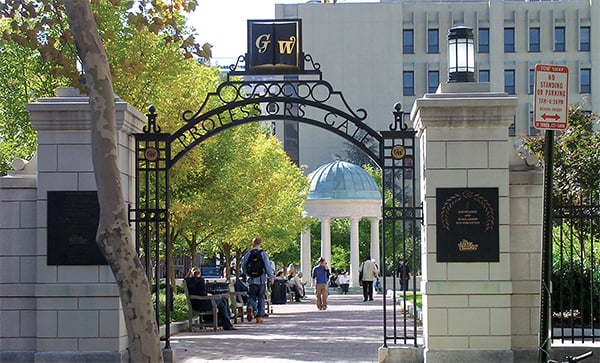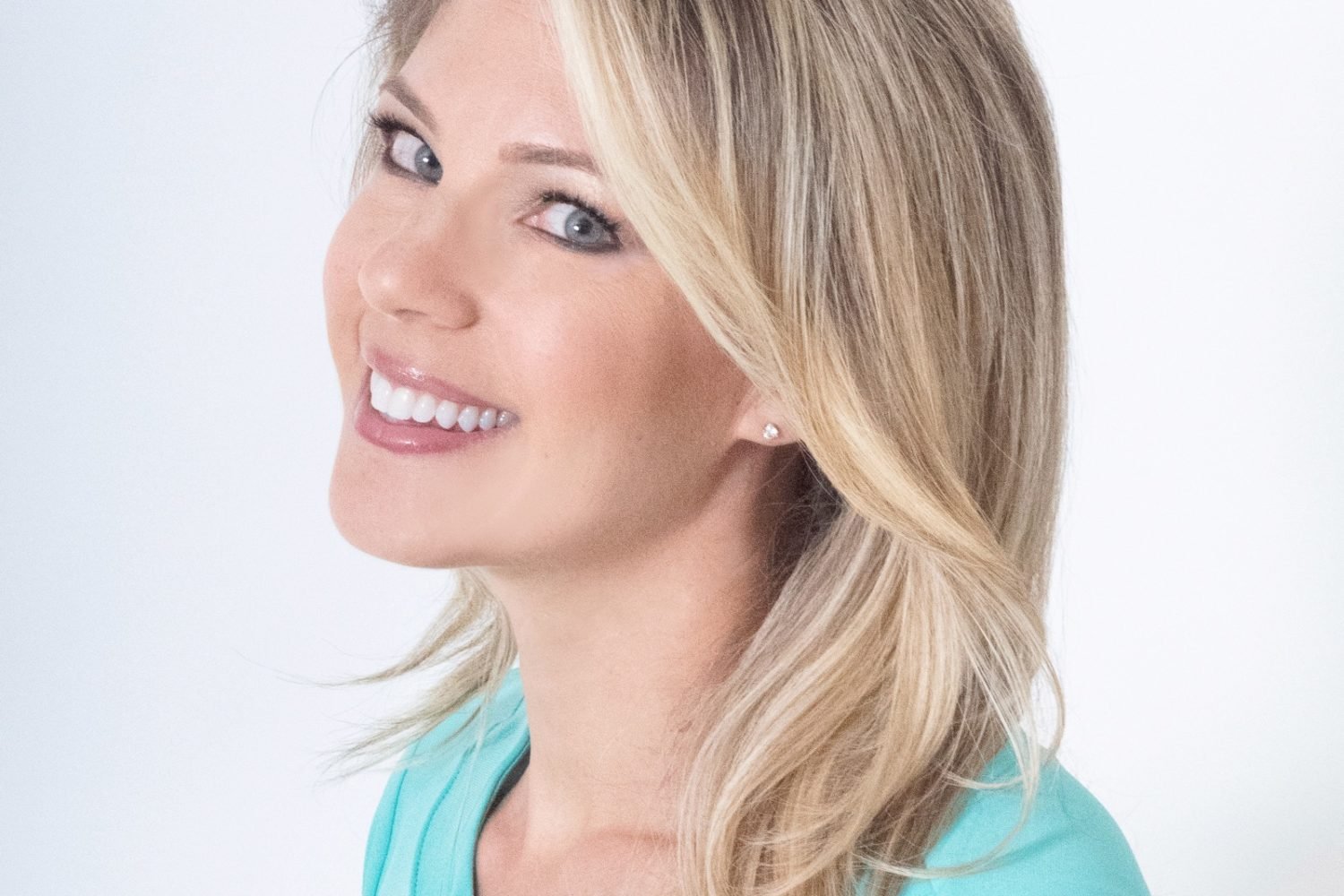Like many high-school students, Runala Jaglal was nervous about heading to college. She’d been comparing schools and thinking about a major. But for all her preparation, college still seemed intimidating.
“I wanted a better idea of what college was actually like academically and socially,” Runala says. So she enrolled in George Washington University’s Pre-College Program, a summer course that gives high-schoolers a taste of life on campus.
Such programs emphasize the academic rigors of college but also the freedom and independence. Students take classes taught by professors, learn how to use campus resources such as libraries and writing centers, and live in dorms. Some programs provide help with college applications and counseling on scholarships and financial aid.
Runala, who grew up in South Carolina, says the summer experience helped prepare her for the next four years of her life. “By the end of the program, I felt confident in grasping college-level material,” she says. “I came out of it knowing what I wanted to do and where I wanted to be.” This year she’s a freshman at GW.
When Marlon Marshall came from Chicago to attend Georgetown University’s College Preparatory Program two years ago, he also was apprehensive about life after high school.
Just out of tenth grade, he took courses in study skills, algebra, and expository writing. The experience of being in a college classroom and taking courses taught by Georgetown professors gave him a big confidence boost.
“There’s so much hand-holding in high school today,” says Veronica Donahue DiConti, associate dean of summer school and special programs at Georgetown. “You’re told when to study, when to eat lunch. But here we want them to think critically on their own.”
For Marlon, living in a dorm was eye-opening. “It gave me a taste of how it feels to be independent,” he says. “I had to wake up on my own, get my own food, wash my clothes. I had a lot of freedom, and it showed me that I could make it on my own at college.”
Georgetown’s college-prep program is three weeks long, with students attending class six days a week. This summer it will have 125 spots—up from 100 last year—for rising sophomores through rising seniors. Most come from out of state and live on campus, but DiConti says plenty of Washington-area residents commute or live in dorms.
Most college-prep programs offer writing-center tutors, access to university facilities, and admissions counselors who give students tips on entrance interviews and essays. Students attend presentations that show them what it means to learn in college, such as a lecture series at Georgetown given by popular professors.
“After a lecture, the students will be amazed at how different this type of learning is and how independent they are in that learning,” says DiConti. “They see that a majority of work is done outside of class and that they must manage their time.”
When they weren’t studying, both Runala and Marlon experienced campus social life—hanging out in the dorms, playing sports on the quad.
GW’s program breaks up its academics with such activities as movie nights, pool parties, and chaperoned excursions around DC. “I think it allows the students to build a community, and I’m always amazed at how quickly they do that,” says Georgette Edmondson-Wright, director of summer sessions at GW.
GW’s program is structured differently from multi-week courses such as Georgetown’s. For the past three summers, GW has offered ten-day “mini-courses” in which rising sophomores through seniors choose an area of study such as politics, photojournalism, or foreign policy.
Runala wasn’t sure how her academic interests—medicine and engineering—might translate to a career. At GW’s summer program, she chose to study biomedical engineering. In the afternoon, her class took field trips to the Food and Drug Administration to learn about nanotechnology and to the Smithsonian to see how researchers use MRI machines to study fossils.
Students in the GW program live at the university’s Mount Vernon campus in Northwest DC, and GW student resident assistants staff the dorms. The RAs present talks about adjusting to freshman year as well as how to navigate college life.
At Johns Hopkins’s Summer University, students get pointers in workshops where they can practice admissions interviews and revise their essays. The application to the summer program gives students a taste of real college admissions. They submit transcripts, recommendations, and an essay.
Interest in the five-week program has grown fast, says Jessica Madrigal, director of summer programs at Hopkins. Last year, enrollment increased by 65 percent, to 325 students. Hopkins offers transferrable credits for its Summer University program; students can choose from a variety of introductory undergraduate courses.
Students in the University of Maryland’s Young Scholars program also take courses for credit, and enrollment has increased dramatically. This year, the three-week program will grow from 475 students to 600. Eric Johnson, assistant director of extended studies, says in the future the school hopes to offer two sessions per summer.
“This is an investment for us,” Johnson says. “We’re getting a pipeline to these students early and finding the ones who are really interested in each area of study.”
The summer after Marlon Marshall attended Georgetown’s college-prep program, he returned to take two undergraduate courses for credit through a different program, the Summer College for High School Students.
“I wanted to be a Georgetown student again,” says Marlon, now in his senior year of high school. “I felt at home there.” He has started applying to colleges, including Georgetown.
“The program is good for students who are just at that stage of thinking, ‘What’s this college thing right around the corner?’ ” says Georgette Edmondson-Wright. “It’s about finding your fit, your space. There’s no book or Web site that can do that as well as coming to a campus and being there.”
College-Prep Programs
American Collegiate Adventures at American University, 800-509-7867. Rising sophomores through seniors take courses or do community service for 2½ or 3½ weeks. The cost is $5,995.
American University Community of Scholars, 202-885-2442. A three-week program for rising juniors and seniors interested in international relations. Tuition is $2,300.
Catholic University Summer Sessions, 202-319-5257. Undergraduate credit courses in which rising juniors and seniors work alongside university students. Sessions are five or six weeks and cost $770 per credit hour.
Georgetown University College Preparatory Program, 202-687-8700. A three-week program in which rising sophomores through seniors take courses in English, math, and study skills and receive SAT-prep and admissions guidance. The cost is $4,300.
Georgetown University Summer College, 202-687-8700. Rising sophomores through seniors take five weeks of credit courses alongside university students for $1,043.
George Washington University Pre-College Program, 202-994-6360. Ten-day mini-courses in which rising sophomores through seniors choose an area of study and attend field trips and lectures. Tuition is $1,980 to $2,600.
Johns Hopkins University Discover Hopkins, 410-516-4548. Rising freshmen through seniors take a two-week intensive course in health studies, history, politics, or sociology for $$2,055.
Johns Hopkins University Summer University, 410-516-4548. Rising sophomores through seniors take five weeks of credit courses alongside undergraduates for $6,300 to $6,930.
University of Maryland Young Scholars Discovery, 301-405-6551. Rising eighth- and ninth-graders spend two weeks discussing topics including globalization and diplomacy. Tuition hasn’t been set.
University of Maryland Young Scholars Program, 301-405-6551. Rising sophomores through seniors enroll in one three-credit course, exploring the topic through seminars and field trips. Three-week sessions are $2,000 to $3,000.




















